Today SevenPonds speaks with Steven Willey. Steven Willey began his hospice career in 1995 as a volunteer and Home Health Aide for San Luis Obispo County Home Health and Hospice. In 1997, he became Volunteer Coordinator for Hospice of San Luis Obispo County, where he remained until joining Wilshire Hospice in 2011. Steve has degrees in both psychology and social sciences and completed the Sacred Art of Dying course at the Sacred Art of Living Center in Oregon. In 2001, he helped found the Supportive Care Services Program at the California Men’s Colony which trains inmates to provide compassionate end-of-life support for fellow inmates. His role at Wilshire Hospice includes the training, supervision and nurturing of hospice volunteers.
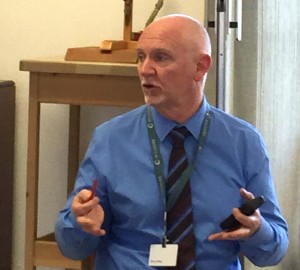
Steven Willey
(Credit: Carla Friedman)
Carla: I completed my first hospice training long before the mainstream medical and insurance communities were fully educated and accepting of hospice care as a common practice. Now almost fully integrated into our healthcare system, do you feel that the corporatization of hospice has diminished or enhanced its essential quality?
Steven: I feel that the soul of hospice is still the same, but I’m saddened by the pervasive necessity of ‘quantification.’ We seem, as a culture, to want to qualify everything, to measure everything to make sure we get our money’s worth. People don’t want to be cheated and are focused on getting what they feel they are ‘owed.’ That seems to have increased over the past seven years or so. San Diego Hospice had a fantastic and highly respected program. They were forced to close after a Medicare audit found that there were patients who were on service that may not have met hospice criteria. Proper documentation of a patient’s decline was also an issue.
Of course these are important issues, but the tens of millions of dollars San Diego Hospice will probably have to pay back sent a chill throughout the industry. More and more patients don’t fit into clear “six months or less” timelines, and the fear of more intense scrutiny has to be balanced by the care we want to give patients who still need hospice support. Oversight is good, but it shouldn’t be the center of the experience. The soul should be the center. The soul of this work is, though, completely intact, and I think it always will be. Almost everyone I work with has that soul.
Carla: Do you find that those seeking hospice care for themselves or a loved one varies in terms of gender, race, economic strata and/or demographic?
Steven: It might vary culturally, but not racially or economically. The degree to which people allow themselves to be ‘vulnerable’ is the degree to which they accept or reject hospice.
Carla: As if working with the dying isn’t challenging enough, you have also both trained as hospice carers and counseled dying prisoners here in San Luis Obispo. What’s that like?
Steven: This work has taught me that the ordinary things are all that matter. It doesn’t matter to me what someone has or hasn’t done in their lives — political, religious, moral, etc. What matters is what their soul is doing in that moment: what are they looking at, what’s hard for them, what do they hear, the immediacy of the present. Volunteering in the prison has given me so many insights into things like forgiveness, hope and genuineness, and my education there is ongoing. I will always be deeply grateful to the men I’ve worked with in the prison for what I have learned from them. I hope we are all able to look at our lives and see at least one or two things we’ve done that really matter.
Carla: Being present without judgement, without agenda with a present mind and open heart?
Steven: Yes. I would add only the importance of being genuine. Of just being yourself.
Carla: I know that you have a love of poetry, which you often share throughout the hospice trainings and volunteer meetings. Would you share one of your favorites with SevenPonds?
Steven: Sure. Here is one:
Musée des Beaux Arts (1940)
W.H. Auden
About suffering they were never wrong,
The Old Masters: how well they understood
Its human position; how it takes place
While someone else is eating or opening a window or just
walking dully along;
How, when the aged are reverently, passionately waiting
For the miraculous birth, there always must be
Children who did not specially want it to happen, skating
On a pond at the edge of the wood:
They never forgot
That even the dreadful martyrdom must run its course
Anyhow in a corner, some untidy spot
Where the dogs go on with their doggy
life and the torturer’s horse
Scratches its innocent behind on a tree.
In Breughel’s Icarus, for instance: how everything turns away
Quite leisurely from the disaster; the ploughman may
Have heard the splash, the forsaken cry,
But for him it was not an important failure; the sun shone
As it had to on the white legs disappearing into the green
Water; and the expensive delicate ship that must have seen
Something amazing, a boy falling out of the sky,
had somewhere to get to and sailed calmly on.
Carla: Thank you for speaking with us!
Steven: Thank you.
Read Part One of this interview with Steve Willey here!

 Who Guides Hospice Volunteers? An Interview with Steven Willey, Hospice Volunteer Manager, Part Two
Who Guides Hospice Volunteers? An Interview with Steven Willey, Hospice Volunteer Manager, Part Two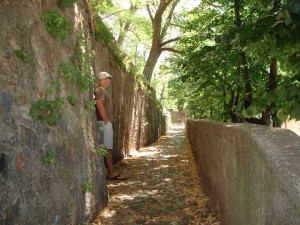
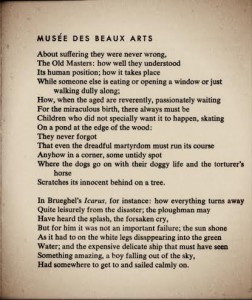


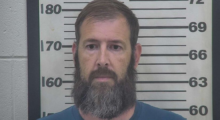
 Funeral Home Owner Chris Johnson Spending Halloween in Jail
Funeral Home Owner Chris Johnson Spending Halloween in Jail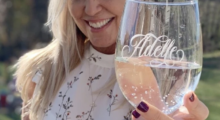
 Our Monthly Tip: Toast a Loved One with a Personalized Glass
Our Monthly Tip: Toast a Loved One with a Personalized Glass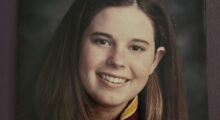
 My Cousin’s Death Taught Me the Meaning of Life
My Cousin’s Death Taught Me the Meaning of Life














